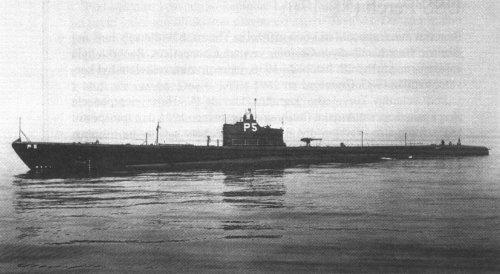
NAVYPEDIA
 Support the project with paypal
Support the project with paypal
Photo

Perch 1937
Ships
| No | Name | Yard No | Builder | Laid down | Launched | Comm | Fate |
|---|---|---|---|---|---|---|---|
| SS176 | Perch | 23 | Electric Boat, Groton | 2.1935 | 9.5.1936 | 11.1936 | sunk 3.3.1942 |
| SS177 | Pickerel | 24 | Electric Boat, Groton | 3.1935 | 7.7.1936 | 1.1937 | sunk 3.4.1943 |
| SS178 | Permit (ex-Pinna) | 25 | Electric Boat, Groton | 6.1935 | 5.10.1936 | 3.1937 | Naval Reserve TS 1.1947, stricken 7.1956 |
| SS179 | Plunger | Portsmouth N Yd | 7.1935 | 8.7.1936 | 11.1936 | Naval Reserve TS 5.1946, stricken 7.1956 | |
| SS180 | Pollack | Portsmouth N Yd | 10.1935 | 15.9.1936 | 1.1937 | stricken 10.1946 | |
| SS181 | Pompano | Mare Island N Yd, Vallejo | 1.1936 | 11.3.1937 | 6.1937 | sunk 8-9/1943 |
Technical data
| Displacement standard, t | |
|---|---|
| Displacement normal, t | 1330 / 1997 |
| Length, m | 89.2 wl 91.6 oa |
| Breadth, m | 7.67 |
| Draught, m | 4.62 |
| No of shafts | 2 |
| Machinery | SS176 - 179: 4 Winton diesel-generators / 2 electric motors SS180: 4 Fairbank-Morse diesel-generators / 2 electric motors S181: 4 Hoover, Owens, Rentschler diesel-generators / 2 electric motors |
| Power, h. p. | 4300 / 2366 |
| Max speed, kts | 19.25 / 8 |
| Fuel, t | diesel oil 373 |
| Endurance, nm(kts) | 10000 (10) / 42 (5) |
| Armament | 1 x 1 - 76/50 Mk 17/18, 2 x 1 - 12.7/90, 6 - 533 TT (16, 4 bow, 2 stern) |
| Electronic equipment | QC, JK sonars |
| Complement | 54 |
| Diving depth operational, m | 75 |
Standard scale images

Pompano 1937
Graphics
Project history
Designed on basis of Cachalot class submarines. Dimensions and displacement were notably increased, that allowed to install more powerful diesels and make engine room more spaciously (in comparison with very tight and inconvenient for the maintenance engine room on Cachalot). Abandoning from rigid connection of diesel with propeller shaft and transition to an electrical drive became an important innovation of this class also. Introduction of generators on diesel shafts was partly indemnified by abandoning from using of auxiliary diesel-generator serving only for battery recharging. New scheme ensured much more flexible machinery usage, allowing significant expedite process of recharging or to recharge battery almost on full speed. Advantage of diesel-electric gear was showed as in appreciable decrease in vibration. The special attention has been given to improvement of habitability conditions, in particular, for the first time they received air conditioners. Double-hulled.
Financing of building of this class was conducted within the limits of National Industrial Recovery Act accepted in 1933. There existed two detailed projects, developed by Bureau of construction (SS172 and 173) and Electric Boat (SS174 and 175).
6 more submarines were built under the FY1935 program. They differed from Porpoise, except usage of more powerful diesels, a little.
Modernizations
1942, Pickerel, Permit: + 2 - 533 TT (ext stern, 18 torpedoes totally)
9.1942, Pompano: diesel-generators were replaced by Fairbank-Morse
1942 - 1943, all survived: CT was rebuilt; - 2 x 1 - 12.7/90; + 2 x 1 - 20/70 Mk 4, SD, SJ radars
1/1946, SS178: 8 - 533 TT (4 bow, 2 stern, 2 ext stern, 18), 1 x 1 - 76/50 Mk 11, 2 x 1 - 20/70 Mk 10, SD, SJ radars, QC, JK sonars
1/1946, SS179, 180: 6 - 533 TT (4 bow, 2 stern, 16), 1 x 1 - 76/50 Mk 11, 2 x 1 - 20/70 Mk 10, SD, SJ radars, QC, JK sonars
Naval service
Perch 1.3.1942 was damaged by DCs from Japanese destroyers Amatsukaze and Hatsukaze and 3.3.1942 scuttled E off Surabaya being additionally damaged by Japanese destroyer Yukikaze. Pickerel in April, 1943 was lost at N coast of Japan (most likely, 3.4.1943 at N coast of Honshu she was sunk by Japanese aircraft, destroyer Shirakami and auxillary patrol Bunzan Maru). Pompano was lost by unknown cause in August-September, 1943, probable off Honshu or Hokkaido, probably mined.
 HOME
HOME FIGHTING SHIPS OF THE WORLD
FIGHTING SHIPS OF THE WORLD UNITED STATES OF AMERICA
UNITED STATES OF AMERICA SUBMARINES
SUBMARINES PERCH submarines (1936 - 1937)
PERCH submarines (1936 - 1937)
